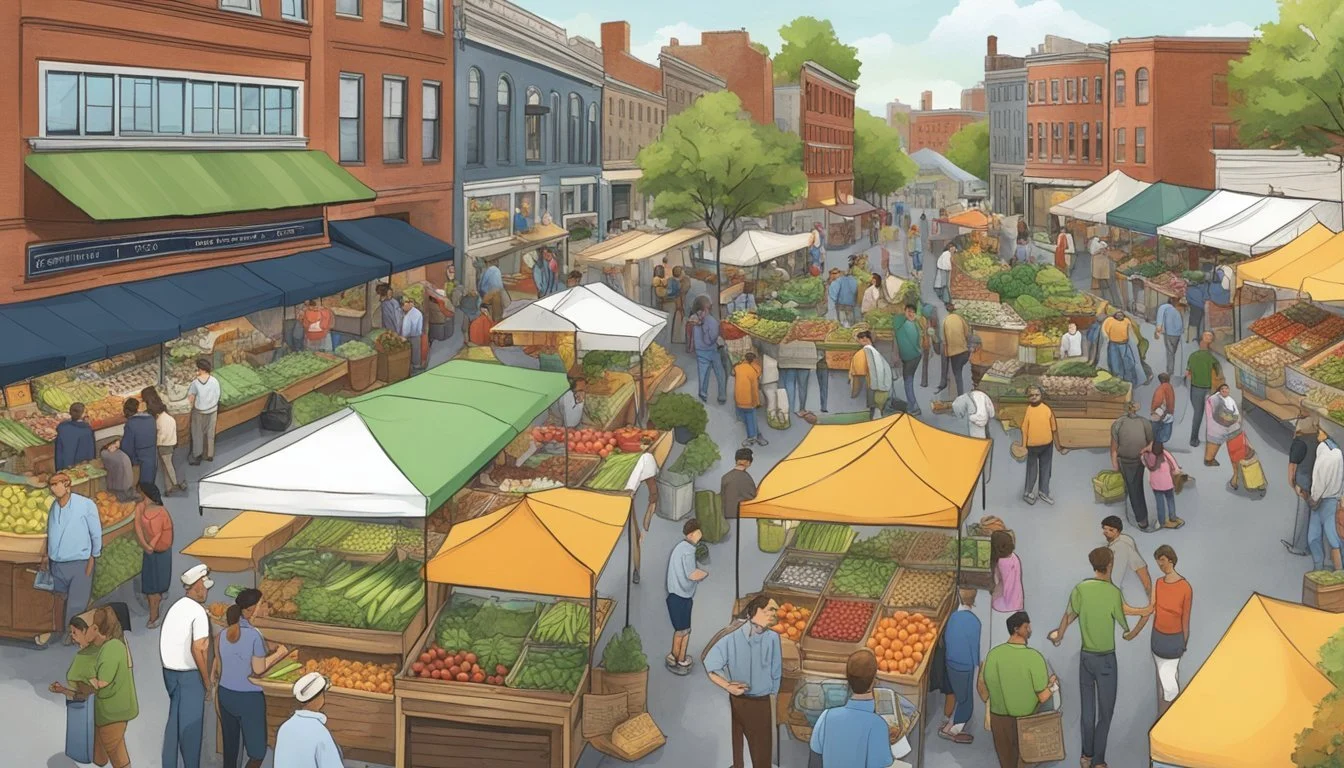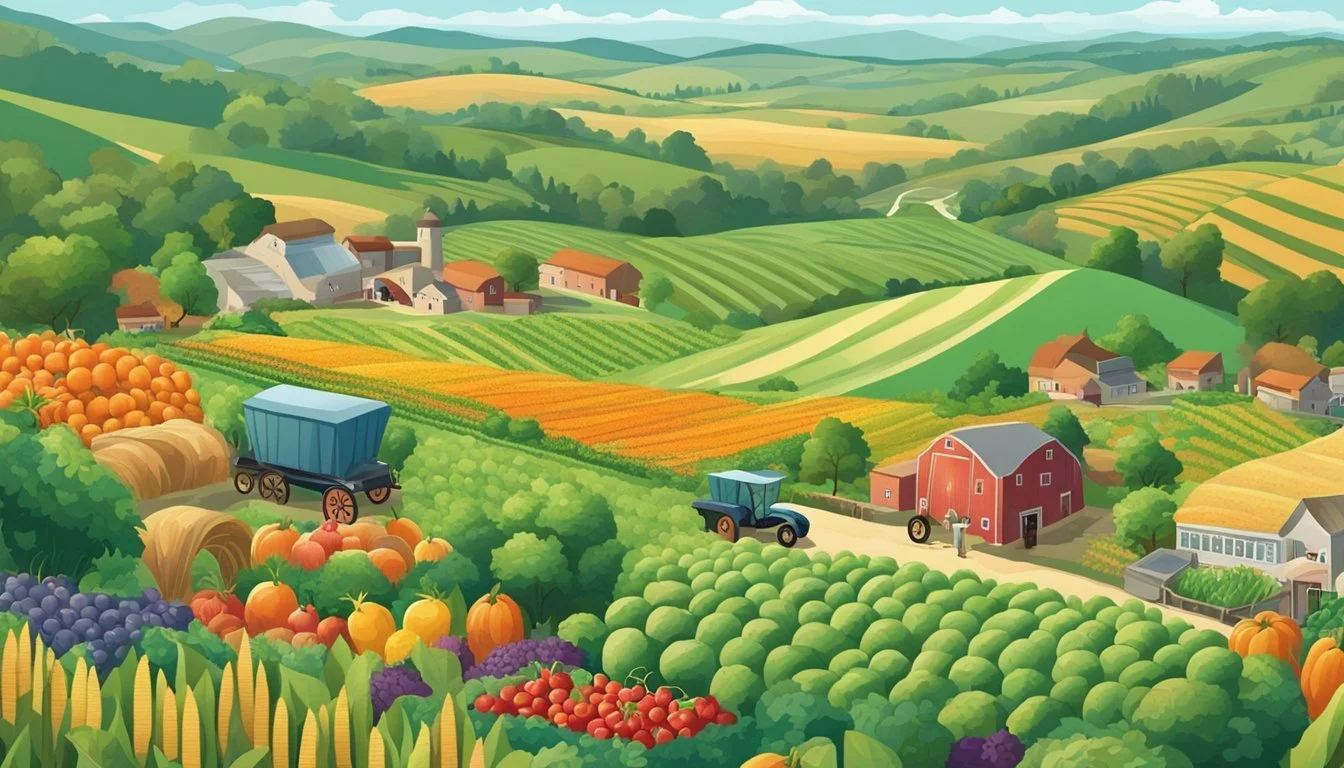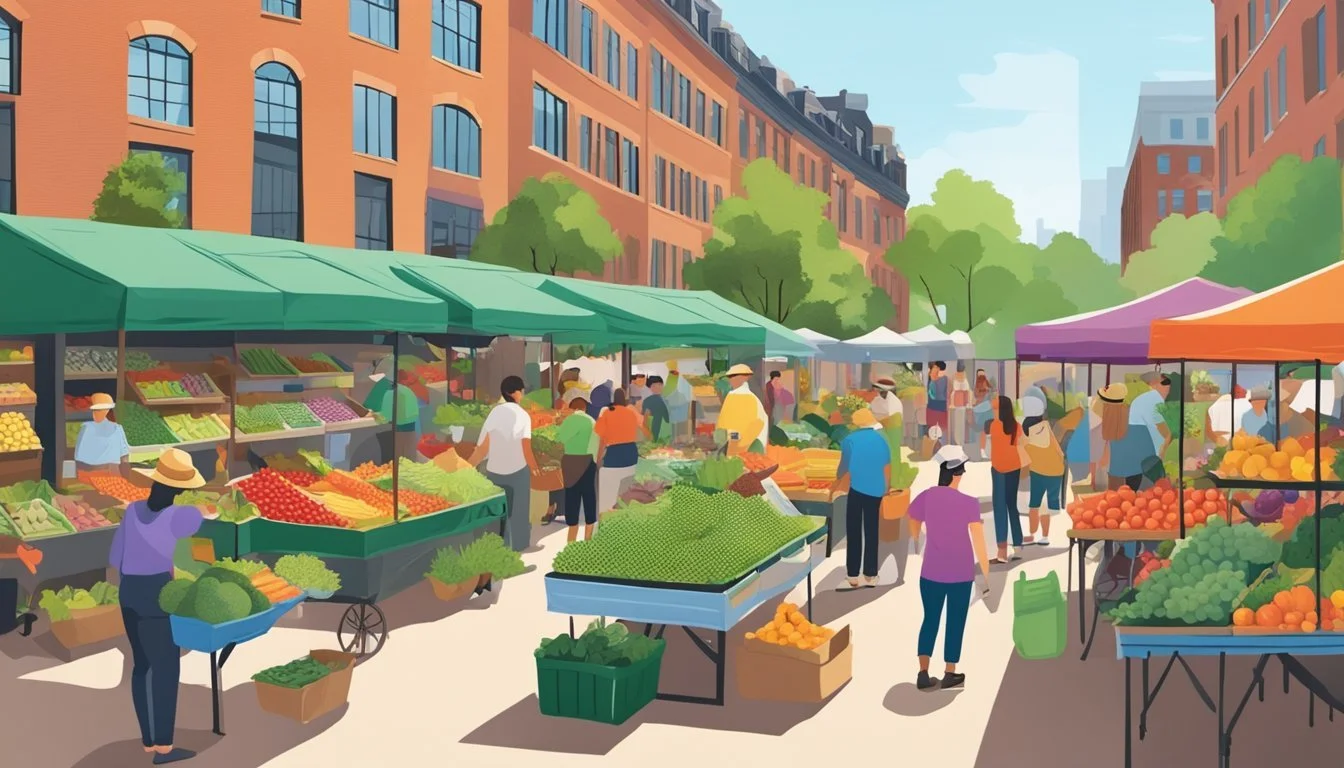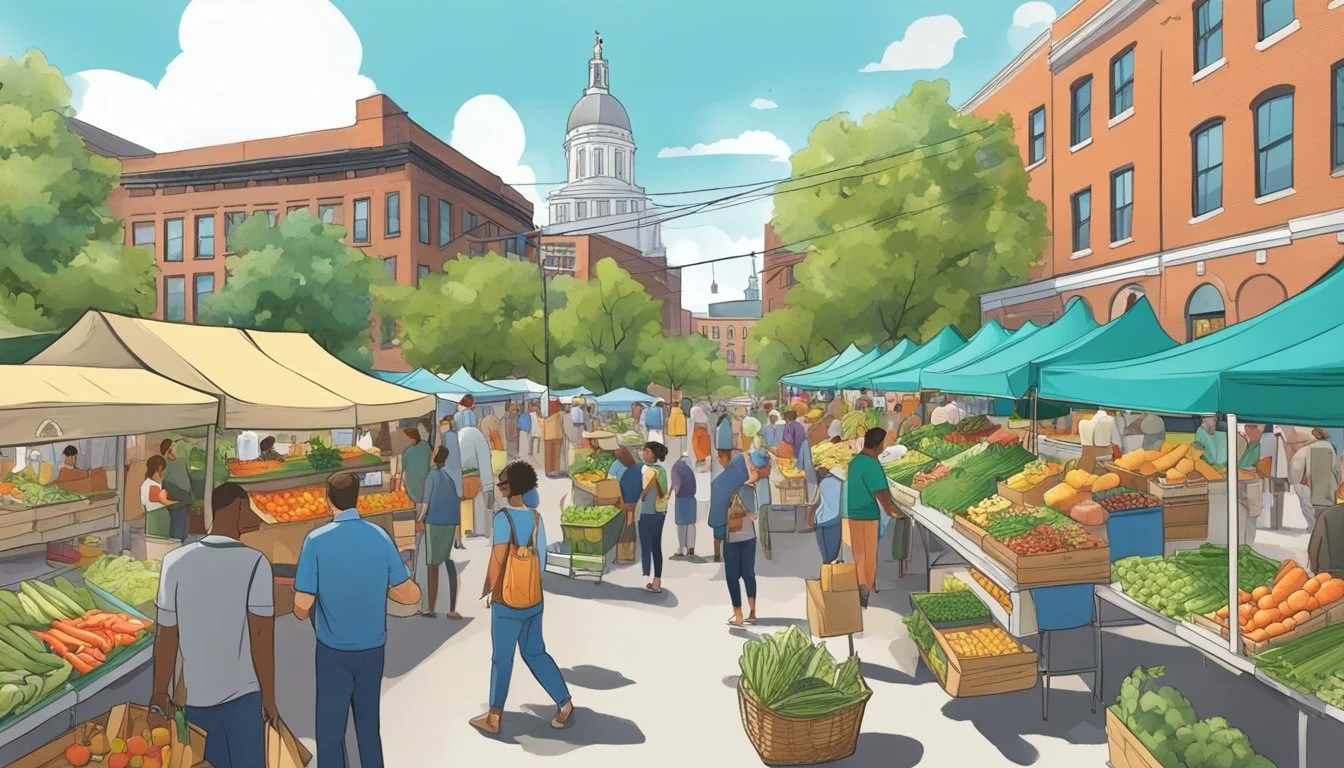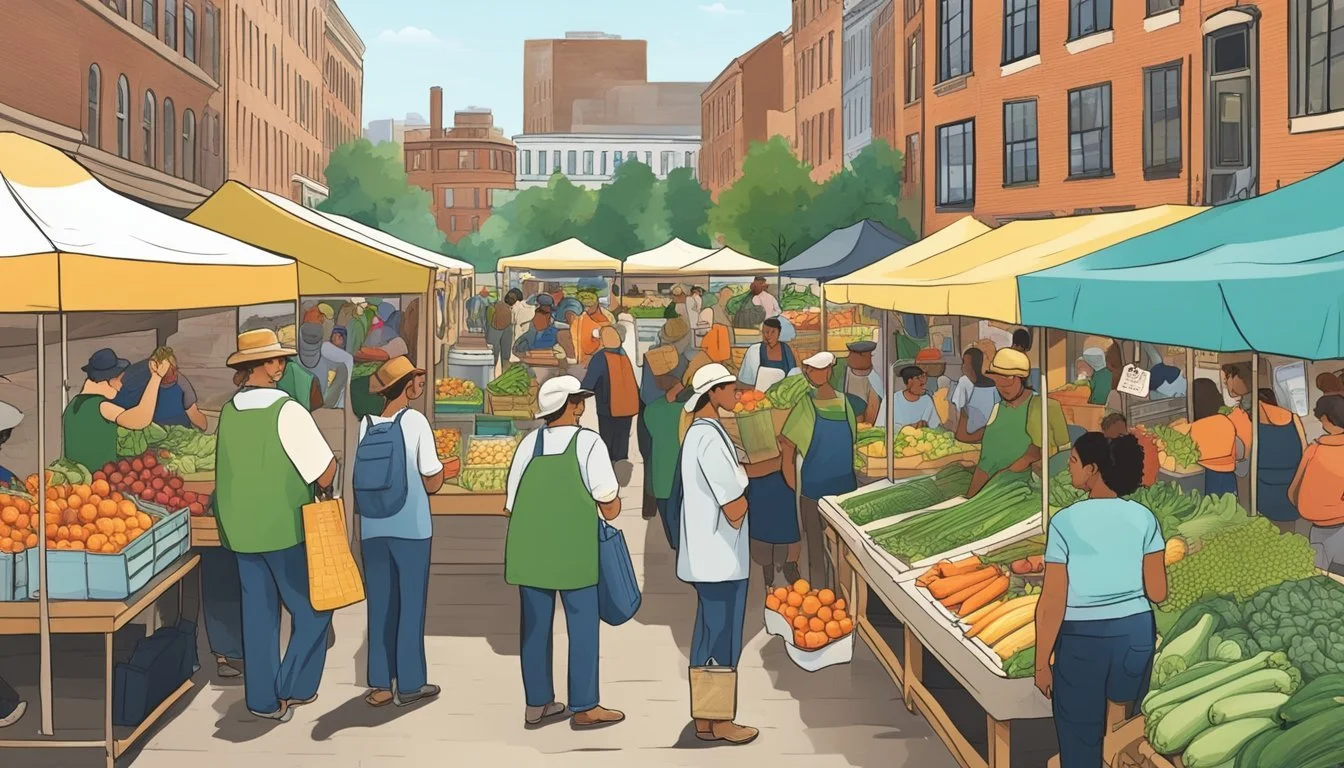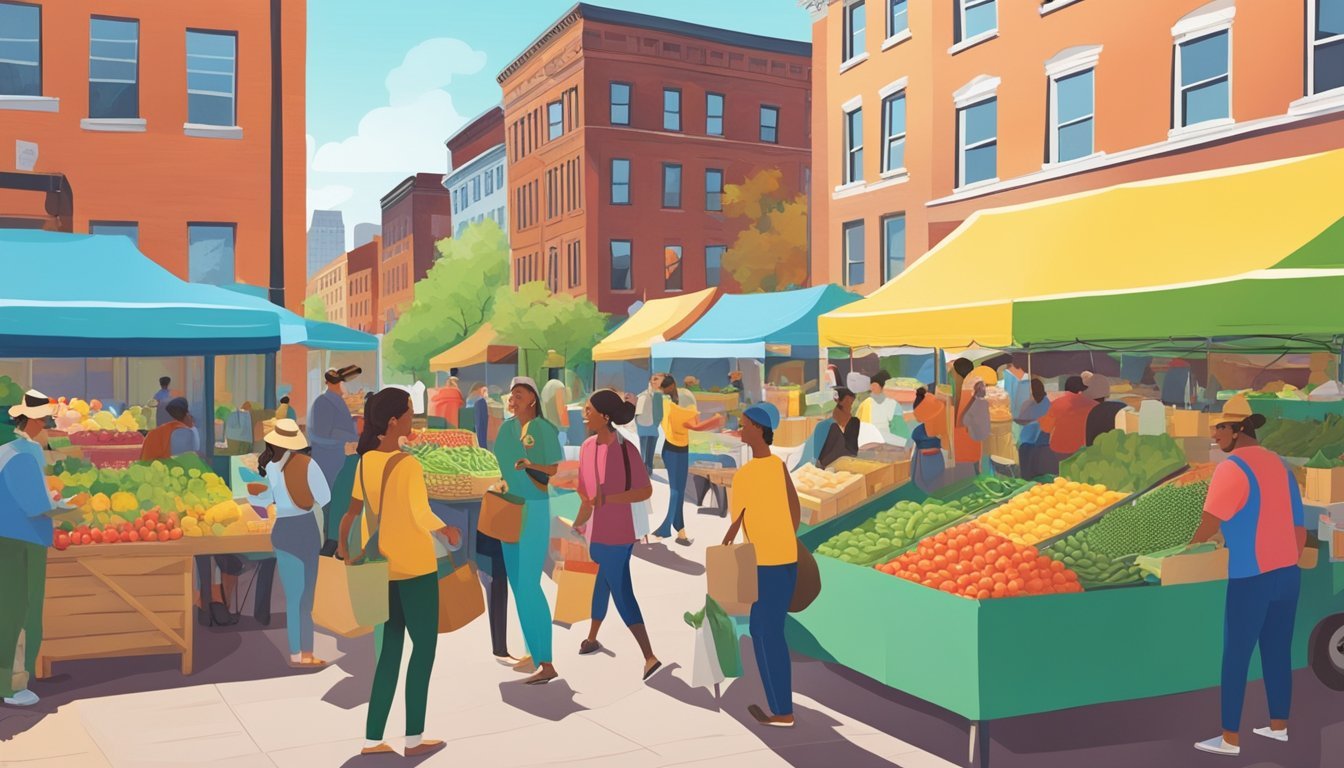Community Supported Agriculture (CSA) in Boston, MA
A Guide to Local Farm Partnerships
Community Supported Agriculture (CSA) has taken root in Boston, MA, providing residents of this bustling city with direct access to high-quality, locally-sourced produce. By joining a CSA, members buy shares of a farmer's harvest in advance, securing a season's worth of fresh fruits, vegetables, and sometimes additional items like eggs or herbs. This model supports local farmers by ensuring a steady demand for their crops while encouraging sustainable agricultural practices.
In Boston, the movement towards CSA programs aligns with the city's growing interest in food security and community resilience. These programs offer weekly deliveries or pickups of fresh produce, fostering a closer connection between consumers and the source of their food. Moreover, several CSA farms cater to the specific needs of the community by offering flexible payment plans or volunteering opportunities, further embedding the concept of shared enterprise within the urban context.
Urban farms and non-profit organizations in Boston have also embraced CSA as a tool for promoting climate justice and addressing food deserts. By providing numerous pick-up locations and partnering with local farms, these programs enhance the availability of nutritious food options throughout the city. Boston's commitment to CSA illustrates an investment in community well-being, local agriculture, and environmental stewardship.
Understanding CSA
Community Supported Agriculture (CSA) is a partnership between farmers and community members that fosters a sustainable food system and supports local agriculture. Through a seasonal subscription, members receive a share of fresh produce, thereby investing directly in their local farm's success.
The CSA Model
The core concept of a CSA centers around members purchasing a share of a farm's anticipated harvest before the season begins. This share often takes the form of a weekly or bi-weekly box of vegetables and fruits, and sometimes includes other farm products like eggs, meat, and herbs. In Boston, CSA models can vary with options such as weekly or monthly payment plans, and some require a commitment of a few hours of farm work during the growing season.
Payment Structure: Typically, members pay upfront for the entire season.
Duration & Frequency: Most CSAs run during the primary growing season with weekly pick-up or delivery of produce.
Work Requirement: Some CSAs have an optional or mandatory work component for members.
Benefits of CSA
Joining a CSA has several benefits for both the farmers and members. For farmers, it provides a stable income source and the ability to plan more accurately for the season. Members benefit by receiving a weekly supply of local and often organic produce.
Supports Local Farmers: Member investment helps farms with upfront season costs.
Fresh & Healthy Produce: Members enjoy seasonal produce at peak freshness and nutrition.
Sustainability: CSA models encourage environmentally friendly practices and reduced food miles.
Community Building: Members often form a connection with the farm and their local food community.
By choosing a CSA, members have the opportunity to actively engage with the local food system and experience the seasonal rhythms of their regional agriculture.
Choosing a CSA in Boston
In Boston, Massachusetts, selecting a CSA (Community Supported Agriculture) connects consumers directly with local farms, offering season-long access to fresh produce. Considerations such as season availability and the farm's practices play pivotal roles.
Season Availability
When joining a CSA, consumers should inquire about the duration and timing of the produce availability. Many CSAs in the Boston area offer summer shares, starting at around $375, which typically include popular summer crops like baby spinach, potatoes, and tomatoes. Some extend into the fall with offerings of sweet corn and fruit. Here's an overview of what one might expect:
Summer CSA: Baby spinach, potatoes, tomatoes, etc.
Fall CSA: Sweet corn, various fruits, etc.
Selecting a Farm
Choosing the right farm for a CSA share involves several factors:
Location: Farms in the Greater Boston area may have multiple pick-up locations, even more than 20 options, which can greatly influence convenience for members.
Produce Variety: Farms offer different types of weekly baskets. For example, the Eastie Farm focuses on providing local, healthy food, with shares that might contain 10-20 pounds of produce, eggs, and specialty items sourced from over 50 local farms.
Organic Certification: Some consumers prioritize whether a farm is certified organic. Certified organic farms adhere to specific guidelines for sustainable and chemical-free farming, which ensures the ecological footprint is minimized and food quality is high.
Share Size: Consumer needs vary, and so do share sizes. Farms typically offer a range of options from full shares, delivered weekly, to flex shares, available bi-weekly.
Through careful consideration of season availability and farm offerings, Boston residents can find a CSA that best fits their preference for local, seasonal, and possibly organic farm products.
How CSA Works
Community Supported Agriculture in Boston allows residents to subscribe to a season's worth of produce from local farms. Members typically pay upfront, which provides the farmer with needed capital at the beginning of the growing season.
Sign-Up Process
To become a member of a CSA in Boston, individuals must sign up typically at the start of the growing season. Farms offer various subscription plans, often with an expectation for members to pay the full amount for the season upfront. However, some farms may offer flexibility with options for weekly or monthly payments. Interested individuals can find sign-up details on farm websites or at local markets.
Required Information for Signing Up:
Full Name
Contact Information
Preferred Pick-Up Location or Delivery
Subscription Type (e.g., vegetables, fruit, herbs, eggs, meat, or combined options)
Payment Method
Weekly Share Breakdown
Once subscribed, members receive a weekly share of farm produce, which may include a variety of vegetables, fruits, herbs, and some CSAs offer additional items like eggs and meat. The content and quantity of shares can fluctuate weekly based on seasonal availability and harvest yields.
Typical Share Contents:
Vegetables: 6-10 types
Fruit: 2-3 varieties
Herbs: 1-2 bunches
Eggs: Usually by the dozen (if included)
Meat: Various cuts (if included)
Members usually have the option to pick up their share at designated locations or have it delivered for an additional fee. Some farms also offer 'pick-your-own' experiences, where members can directly harvest certain produce themselves.
CSA Member Commitment
When joining a CSA in Boston, members typically commit to two primary aspects: contributing volunteer work and meeting financial obligations. Each CSA has its own set of requirements and members should be aware of these commitments before joining.
Volunteer Work
Many CSAs request that their members contribute a few hours of labor to support farm operations during the growing season. This hands-on involvement can include activities such as:
Planting and harvesting produce
Packaging CSA shares for distribution
Assisting in the upkeep of community areas on the farm
These volunteer hours foster a sense of community and give members a deeper connection to the source of their food.
Financial Aspects
Financial commitment in a CSA involves upfront costs at the beginning of the season. Members typically pay for their shares in advance, which helps farms with early season financial needs. Some basic financial aspects include:
Membership Costs: A pre-determined amount paid for the entire season.
Payment Options: While most CSAs prefer upfront payment, others may offer weekly or monthly payment plans.
By understanding and adhering to both volunteer and financial commitments, members play a crucial role in sustaining the community supported agriculture model.
Agricultural Practices
In Boston's community-supported agriculture, farmers prioritize environmentally friendly techniques and conscientious stewardship of resources. These practices ensure not only the health of the crops but also the sustainability of the farming operations.
Organic Farming
Organic farms in the Boston area adhere to stringent practices that exclude synthetic fertilizers and pesticides. They rely on natural methods for enriching the soil, such as composting and the use of green manure. Seed selection is critical, with a focus on non-GMO varieties that are more resilient and adapted to local conditions. Integrated pest management techniques are employed to protect plants without harming the ecosystem.
Sustainable Growing
Boston's CSA farmers employ sustainable agriculture practices to conserve water and soil while maximizing yield. They implement crop rotation to maintain the health of the soil and prevent depletion of nutrients. Water usage is optimized through systems like drip irrigation that deliver water directly to the plant roots, reducing waste and runoff. Labor on these farms often involves the local community, which provides an opportunity for education and promotes a connection between consumers and their food sources. Sustainable practices also include the utilization of renewable energy sources where possible, reducing the overall carbon footprint of the farming operations.
Local CSA Farms
Boston's surrounding farmlands offer a rich variety of CSA farm choices providing fresh, locally-grown produce to urban residents. These farms boast a commitment to sustainable agriculture and community engagement.
Farm Profiles
Bay End Farm: Located in Buzzards Bay, this Certified Organic farm provides CSA memberships and contributes produce to local restaurants. Their farm stand is open seasonally for direct purchases.
Siena Farms: Siena Farms operates on 75 acres of historically rich farmland. They focus on sustainable methods to provide fresh produce to their CSA members, with a stand located in the Greater Boston Area for convenient pickups.
Red Fire Farm: With a dedication to organic farming, Red Fire Farm offers a bounty of vegetables and fruits. They distribute their produce through CSA shares with pickup options available in Boston.
Warner Farm: They are known for their CSA program that has been serving the community for decades, offering a range of fresh produce to their members, and emphasizing integrated pest management practices.
Brookwood Community Farm: This farm engages the community with its CSA program, providing diverse crops harvested with ecologically responsible methods, and serving as an educational resource for sustainable agriculture.
Chestnut Farms: A family-owned and operated farm that provides ethically raised meats to its CSA members. Their offerings include beef, pork, lamb, and poultry.
Distribution Locations
CSA farms offer various distribution methods to ensure fresh produce reaches consumers conveniently:
Pick-up Sites: Many farms, such as Siena Farms and Brookwood Community Farm, have specific pick-up locations in neighborhoods including Jamaica Plain, Brookline, and Newton.
Farm Stands: Farms like Bay End Farm open their stands seasonally, allowing members to purchase additional items outside of their CSA shares.
Delivery Options: Some farms provide the comfort of home delivery or drop-off points at accessible locations in Boston, ensuring weekly shares are received with minimal hassle.
Market Presence: Participating in local farmers' market scenes, farms such as Warner Farm and Red Fire Farm bridge the gap between rural producers and urban consumers.
Each farm offers a unique approach to distribution, reflecting their commitment to making fresh, local produce accessible to the Boston community.
CSA and Community Impact
Community Supported Agriculture (CSA) programs in Boston have a tangible impact on food accessibility and the local economy. These initiatives connect the community with local agriculture, enhancing food access through direct distribution of local produce and strengthening economic ties within the region.
Food Accessibility
Boston-area CSAs, such as the ones operated by Farmer Dave's in Dracut and Allandale Farm, expand food access to urban residents. They provide a consistent source of fresh, seasonally available local produce. Members receive weekly deliveries or pick-up options, ensuring a stable supply of vegetables, fruits, or herbs. Eastie Farm's CSA, tailored to address the needs of East Boston, exemplifies community resilience in food deserts, delivering an array of produce, along with items like eggs and specialty goods from over 50 local farms.
Regular supply: Weekly boxes of 6-10 vegetables.
Food deserts: Specialty programs targeting areas with limited access to fresh food.
Supporting Local Economy
CSA memberships stimulate the local economy by funneling consumer dollars directly to farmers and reducing reliance on imported goods. This funding model gives farmers upfront capital to cover anticipated costs of farm operation, thereby fostering local agriculture. CSAs like Siena Farms in Sudbury invite consumers to invest in their local economy, and in return, they receive fresh produce grown within the community. By doing so, they support the viability of farmers' markets and contribute to a sustainable agricultural system.
Upfront capital: CSA memberships provide early season funding for farmers.
Economic interdependence: Members' payments support the local food system.
Local CSAs in Boston not only contribute to the sustenance and enrichment of the community but also incubate financial stability for local agriculture initiatives. They create a symbiotic relationship between consumers and farmers, accentuating the benefits of a sustainable, accessible local food system.
Consumer Resources
In Boston, consumers have access to a range of resources to maximize their CSA experience, including newsletters for updates and numerous events. A wealth of recipes is also available to inspire creative and wholesome meals using local produce.
Events and Newsletters
Massachusetts CSAs not only provide fresh, local produce but also foster community through various events. These can range from farm visits to cooking classes, offering subscribers a chance to engage closely with their local food system. Consumers should consult their CSA's website or subscribe to a newsletter to stay informed about upcoming events and updates. For example:
Bay End Farm: Organizes regular events and operates a farm stand open from Tuesday to Saturday during the season.
Allandale Farm: Offers weekly newsletters updating consumers on share contents and farm happenings.
Recipes and Tips
Amidst the bounty of produce Boston's CSAs provide, consumers may seek guidance on how to best utilize their weekly share. CSAs often supply subscribers with recipes and preparation tips tailored to the season's offerings. Websites like Edible Boston encompass a collection of recipes that utilize local ingredients, ensuring that consumers can confidently prepare meals that are both nutritious and delicious. Here are some ways to access these culinary resources:
CSA Guides or Newsletters: Often include recipe sections drawing on seasonal produce.
Local Food Blogs and Websites: Host a plethora of recipes, emphasizing the various ways to use fresh CSA ingredients.
Conclusion
Community Supported Agriculture (CSA) has established itself as an integral part of Boston's food landscape. The city's diverse offerings cater to a wide range of consumers seeking healthier, more nutritious eating options. CSA programs in Boston champion fresh food availability and encourage residents to engage directly with local agriculture.
Through seasonal subscriptions, Bostonians have access to weekly baskets of produce sourced directly from nearby farms, ensuring a consistent supply of fresh, nutrient-rich food. This model not only supports the regional agricultural economy but also promotes sustainable food practices.
Local non-profit organizations enhance community resilience by addressing food security in neighborhoods with limited fresh food access. By connecting with CSAs, these areas benefit from fresh produce and agricultural education.
Families can also participate, with farms like Drumlin Farm providing a family-friendly environment and offerings suitable for all ages. Shares typically vary in size, catering to different household needs and fostering a direct link between consumers and the source of their food.
Boston's commitment to these programs reflects a growing trend towards food system sustainability. Consumers are educated on the origins and cultivation of their food, which in turn underpins the success of the CSA model. This approach offers a beneficial exchange for both consumers and farmers, as it enhances local economies while promoting the health and well-being of the community.

